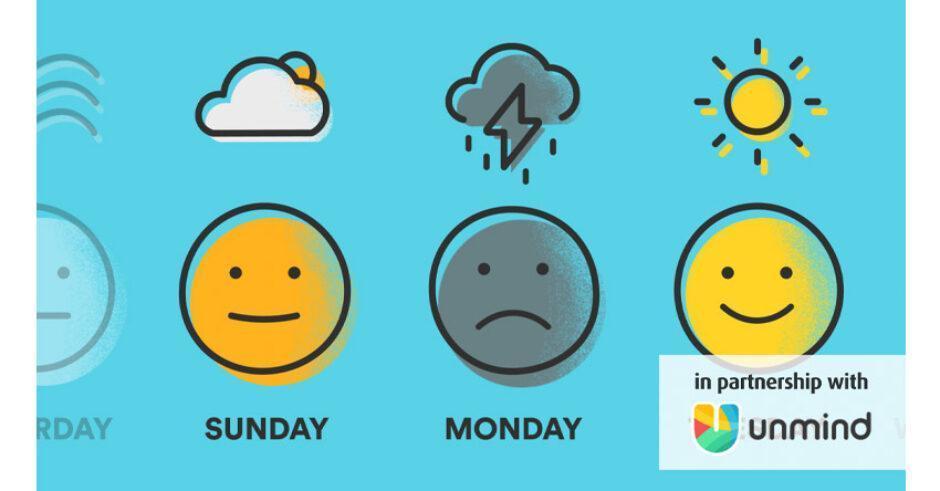This article was a featured article from Friday 28th February 2020 – Tuesday 10th March 2020
Paying attention to our feelings all year round.
Dr Kate Daley, the clinical psychologist who wrote our new Mind Your Mood Series, shares her thoughts on Blue Monday and explains why it’s important to pay attention to our feelings all year round.
Blue Monday. The name given to the most depressing day of the year, at least in the northern hemisphere.
It falls on the third Monday of January every year, and is claimed to be a result of a toxic combination of weather conditions, debt level, time since Christmas, time since failing new year resolutions and motivation levels.
It has been popularised in the media, yet there really isn’t much science behind it. In fact, the calculation behind Blue Monday has been called into question and it seems to have been a publicity stunt by a holiday company to help boost their flagging sales! Despite this, the media seem to like the concept and so it has stuck.
Now it is true that January can be a hard time of year for some of us: the days are cold, the nights are dark, and money (and belts!) can be tight after Christmas. There might be some sadness about the party season being over, leaving loved ones and returning to work, particularly if you’re in a role you’re not happy in, or one with high stress.
But it’s important to know that feeling unhappy about these things isn’t the same as experiencing depression (although you might be experiencing both).
Depression is something which lasts for a longer period of time and can happen at any time of the year. Feeling depressed is more than just feeling sad or blue – people can also experience tiredness, irritability and negative thoughts. There can also be a lack of motivation, enjoyment and interest, and people may experience changes in their activity levels, sleeping patterns and appetite. There is some seasonal variation in depression, for example seasonal affective disorder (SAD) where people commonly experience depressive symptoms in winter. But even then, it refers to the winter season rather than being worse on one specific day.
Whether or not we buy into the idea of Blue Monday, it does bring one benefit, and that is to raise awareness. It allows people to stop and think about how they’re feeling, and to consider the possibility that they are not alone in their experience. For those who are feeling low in mood, it gives the opportunity to consider the factors which may be contributing to how they’re feeling, and to explore what they could do to improve things.
The concept of Blue Monday does have an undertone suggesting that feeling depressed is inevitable, however this clearly isn’t the case and there is also a lot we can do about it. One way to tackle depression is through Cognitive Behavioural Therapy (CBT). CBT is an evidence-based therapy, which looks at changing how we think and what we do, in order to improve how we feel. At Unmind we’ve developed two key Series to tackle low mood and depression – the first focused on activities or behaviours, and the second exploring negative thoughts and beliefs.
If you are feeling blue this Monday, take a moment to consider how long you’ve been feeling this way and whether this is something to tackle. You can talk with your doctor, or if you feel you need more urgent support then you can contact the Samaritans any time by calling 116 123 or emailing jo@samaritans.org.
The Business Transformation Network have shared this article in partnership with Unmind.

